Janice Hardy's Blog, page 87
December 31, 2018
The 2018 Wrap Up: What Did We Accomplish This Year?
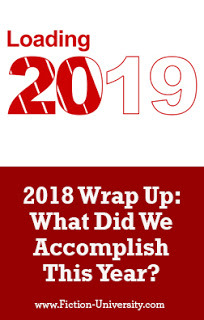 By Janice Hardy, @Janice_Hardy
By Janice Hardy, @Janice_Hardy New Year’s Eve is a time of reflection, and 2018 was a year full of highs and lows. I published some books, attended a slew of events, and ran myself ragged. My husband and I said goodbye to two cats—one we lost too young to cancer (he was 10) the other to old age (he was 18, but still too young), but we also adopted two kittens who made the losses easier to bear. We tore up our house and our lives and reached a dream we’d been after for a long time (at least halfway—the other half is this year). I spent a lot of time with friends and family, but also forgot to carve out enough time for myself.
Every year, I like to take today and wrap up my year and set some goals for the next. I don’t always meet them, but I do try, and pushing myself a little more every year means I get more accomplished than I would have had I done nothing. I invite you to join me in this look back before we move forward into 2019.
Continue ReadingWritten by Janice Hardy. Fiction-University.com

Published on December 31, 2018 03:00
December 26, 2018
Happy Holidays from Fiction University!
 I'm taking a break this week to enjoy the holiday and recuperate from the year. I'll see you all next week with the end-of-year round up, new articles and guest authors, and the winter opening of the 2019 Critique Connection for those looking for a critique group or partner.
I'm taking a break this week to enjoy the holiday and recuperate from the year. I'll see you all next week with the end-of-year round up, new articles and guest authors, and the winter opening of the 2019 Critique Connection for those looking for a critique group or partner. Hope everyone has (or had) a wonderful holiday and a Happy New Year.
--Janice HardyWritten by Janice Hardy. Fiction-University.com

Published on December 26, 2018 04:48
December 21, 2018
Getting to the Heart of the Matter: Infusing Emotion into Fiction
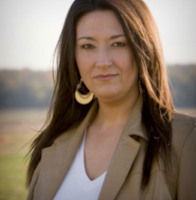 By Charissa Weaks,@charissaweaks
By Charissa Weaks,@charissaweaks Part of the How They Do It Series
JH: Emotion helps readers connect to characters, and in some genre, it's a key component of the novel. Charissa Weaks visits the lecture hall today to share some tips on how to add emotion to your fiction.
Charissa Weaks is an author of historical fantasy and speculative fiction. She crafts stories with magic, time travel, romance, and history, and the occasional apocalyptic quest. When she’s not writing, you can find Charissa digging through four-hundred-year-old texts for research or cuddled with her pups.
Charissa lives just south of Nashville with her husband and children. She is active in the Historical Novel Society, has been named President and PRO-Liason for her local Romance Writers of America chapter, and is a member of the Women’s Fiction Association. She’s also the creator and editor of Once Upon Anthologies.
To keep up with her writing endeavors, join her newsletter, The Monthly Courant.
Website | Goodreads | Facebook | Twitter | Pinterest |
Take it away Charissa...
Continue ReadingWritten by Janice Hardy. Fiction-University.com

Published on December 21, 2018 05:51
December 20, 2018
5 Tips to Improve Your Next Novel Cover
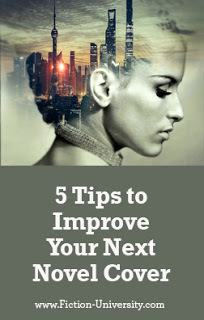 By J. Kathleen Cheney, @jkcheney
By J. Kathleen Cheney, @jkcheney Part of the Indie Authors Series
One of the things I’ve been working on recently is getting my cover-making work started up. I’ve been making covers for myself since 2011, but only recently started looking at it as a sideline, and thus have been honing my Photoshop skills and trying to practice every day. Not unexpectedly, this has been an eye-opening experience for me, not only as to the limits of the PS program, but also how the parameters I’m given make the possibilities for covers better or worse.
So my cover artist self has some tips to pass on to my writer self that will help make my next cover better.
Tip #1: Short words are better for titlesContinue ReadingWritten by Janice Hardy. Fiction-University.com

Published on December 20, 2018 05:46
December 19, 2018
A Goal-Checking Trick for Plotting Your Novel
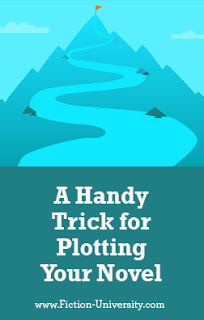 By Janice Hardy, @Janice_Hardy
By Janice Hardy, @Janice_Hardy Here's a handy trick to make sure your plots are strong and driving your novel to the end.
I’ve just finished a rough draft of my latest novel, and like all my rough drafts, I have to fill in some holes and fix a few issues before it’s done enough to call it a first draft. This is all part of my usual process, so I don’t worry about things that don’t yet line up or work (I’ll get there). The rough draft is my way of getting the idea down and giving me something to work with to bring my story to life.
One of my first steps is creating a brand-new editorial map. I already have an outline, but it gets messy with notes and old ideas I forgot to edit out, so I like to do a fresh map to make sure my outline matches what I’ve actually written. It’s also a nice way to remind myself of the story flow and spot holes and things I need to fix on round two.
Continue ReadingWritten by Janice Hardy. Fiction-University.com

Published on December 19, 2018 03:00
December 18, 2018
Conquering the Fear of Revision
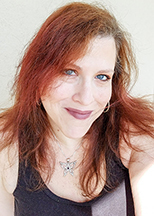 By Jodi Turchin
By Jodi TurchinPart of the How They Do It Series
JH: Writing the first draft of a novel is only the first step. Revision comes next, and it can be a challenge for many writers. To help, Jodi Turchin visits the lecture hall today to help us conquer the fear of revision.
Jodi is a college professor, high school English teacher, YA novelist, and photographer. She has been a member of the Society of Children's Book Writers and Illustrators for over a decade and has been a member of the Romance Writers Association as well. She teaches writing workshops for teens through her local libraries. Jodi lives in Coral Springs, Florida with her former-rockstar roommate and her canine daughter, Violet.
Website | Facebook |
Take it away Jodi...
Continue ReadingWritten by Janice Hardy. Fiction-University.com

Published on December 18, 2018 05:28
December 17, 2018
First Look at a First Draft: How to Revise Your Manuscript
 By Janice Hardy, @Janice_Hardy
By Janice Hardy, @Janice_Hardy Holiday prep had me buried all weekend, so let's dip into the archives today with how to look at your first draft.
There's something exciting and rewarding about a first draft. The story that's been in our heads is finally down on paper and we can see how it developed. Sometimes it unfolded exactly how we pictured, but more often we encountered snags here and there and discovered fun twists and plots as we wrote. The draft might even be, shall we say, a little messy.
And that's okay, because first drafts are often messy and filled with holes. It's what you do with it from here that really matters. As the adage goes...writing is rewriting.
(Here's more on the imperfect first draft)
During that first look, I like to start with the macro structural issues, because if they aren't working, no amount of polishing the text is going to help. It's much easier to do the heavier rewrites in draft form before the story becomes mentally "set in stone." Drafts are supposed to be messed with. So I recommend analyzing your goal and plot structure to make sure your story has something driving the plot, reasons for those somethings to be happening, and that you keep building your stakes to the end.
Continue ReadingWritten by Janice Hardy. Fiction-University.com

Published on December 17, 2018 03:00
December 15, 2018
Real Life Diagnostics: Does This YA Scene Hold Your Interest?
 Critique By Janice Hardy, @Janice_Hardy
Critique By Janice Hardy, @Janice_HardyReal Life Diagnostics is a weekly column that studies a snippet of a work in progress for specific issues. Readers are encouraged to send in work with questions, and we diagnose it on the site. It’s part critique, part example, and designed to help the submitter as well as anyone else having a similar problem.
If you're interested in submitting to Real Life Diagnostics, please check out these guidelines.
Submissions currently in the queue: None
Please Note: As of today, RLD slots are open.
This week’s question:
1. Is this scene working?
Market/Genre: Young Adult Fantasy
On to the diagnosis…
Continue ReadingWritten by Janice Hardy. Fiction-University.com

Published on December 15, 2018 06:24
December 14, 2018
Two Questions to Ask for Stronger Character Goals and Motivations
 By Janice Hardy, @Janice_Hardy
By Janice Hardy, @Janice_Hardy This week's Refresher Friday takes another look and how to write better scenes. Enjoy!
The sheer number of plotting questions I get both here and in person is a good indicator that plotting is something a lot of writers struggle with. It's not a craft issue really, because you can write some beautiful prose and still have trouble creating a good plot.
I've had many a brainstorming session with many a stuck or struggling writer, and over the years I've noticed a few questions keep coming up.
What does the protagonist hope to gain?
Why is the protagonist doing it?
Basically, what's the character's goal and what's the motivation for trying to achieve that goal.
Continue ReadingWritten by Janice Hardy. Fiction-University.com

Published on December 14, 2018 03:00
December 13, 2018
Tips On Becoming a Better Writer
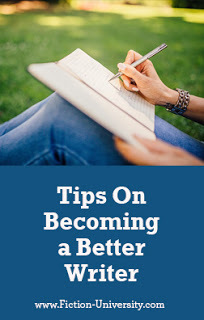 By George A Bernstein, @GeorgeBernstein
By George A Bernstein, @GeorgeBernsteinPart of The Writer's Life Series
So you’ve written your novel, and edited the heck out of it, but how do you get it good enough to actually get published? I went through that problem for a long time, slowly getting to where I had to be as a quality writer.
Here are some suggestions, now that you’ve written a workable product. How do we turn an everyday Volkswagen into a Lexus?
My first suggestion to every new writer is to find a GOOD writers conference (or 2 or 3!), hopefully somewhere near enough to drive to—unless you’ve got cash to burn. Then I recommend you fly to Maui. That’s the Cadillac of conferences.
A well-run conference is usually operated by local writing groups. The Florida Writers Association, for instance, hosts a 3-day event every October, usually in the Orlando area, and the Mystery Writers of America does the three-day SleuthFest each year in Boca Raton, FL, around the first of March.
Continue ReadingWritten by Janice Hardy. Fiction-University.com

Published on December 13, 2018 04:28



